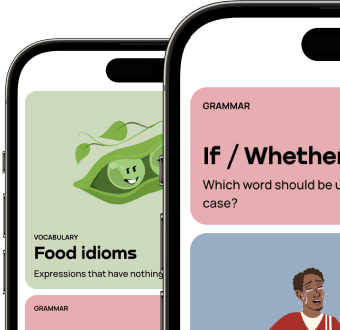Avoir vs Être – How to use and conjugate French auxiliary verbs
Contents
Key takeaways
- Avoir and être are the two main French auxiliary (helping) verbs.
- They form compound tenses like passé composé.
- Avoir is the default auxiliary; être is used with reflexive and motion verbs.
- Their conjugations are irregular and must be memorized.
- Correct choice of auxiliary affects agreement of the past participle.
What Is an Auxiliary Verb in French?
An auxiliary verb (verbe auxiliaire) is a “helping verb” used with a past participle to form compound tenses. Without them, French verbs cannot form the passé composé, plus-que-parfait, futur antérieur, etc.
Examples:
- J’ai mangé. → I ate / have eaten.
- Elle est allée. → She went / has gone.
Conjugation of Être and Avoir
Present Tense of Avoir
- j’ai
- tu as
- il/elle/on a
- nous avons
- vous avez
- ils/elles ont
Present Tense of Être
- je suis
- tu es
- il/elle/on est
- nous sommes
- vous êtes
- ils/elles sont
These forms are the foundation for building compound tenses.
When to Use Avoir
Avoir is the most common auxiliary and is used with most French verbs.
Example:
- J’ai lu un livre. → I read a book.
- Nous avons fini nos devoirs. → We finished our homework.
When to Use Être
Être is used with:
- Reflexive verbs → Je me suis levé. (I got up).
- Verbs of movement and change of state (often called Dr & Mrs Vandertramp):
- aller (to go) → Elle est allée.
- venir (to come) → Ils sont venus.
- arriver, partir, entrer, sortir, naître, mourir, etc.
1
Past Participle Agreement
When using être, the past participle agrees with the subject in gender and number:
- Elle est allée. (feminine singular).
- Ils sont partis. (masculine plural).
- Elles sont arrivées. (feminine plural).
With avoir, agreement only occurs if there is a preceding direct object:
- J’ai vu les filles. (no agreement).
- Les filles que j’ai vues. (agreement).
Avoir vs Être in Sentences
| Tense | With avoir | With être |
| Passé composé | J’ai mangé une pomme. | Elle est venue hier. |
| Plus-que-parfait | J’avais lu le livre. | Ils étaient partis tôt. |
| Futur antérieur | J’aurai fini mon travail. | Nous serons arrivés à temps. |
Common Mistakes
- Using avoir instead of être with reflexive verbs.
- Forgetting agreement with être.
- Overusing être (remember: avoir is default for most verbs).
Exercises: Practice Avoir vs Être
1. Fill in the blanks
- Nous ________ (avoir/être) partis tôt.
- J’________ (avoir/être) étudié toute la journée.
- Elles ________ (avoir/être) arrivées ensemble.
2. Translate into French
- She has eaten an apple.
- They went to the park.
- We have finished the lesson.
3. Correct the mistakes
- ❌ Je suis mangé une pizza.
- ❌ Elles ont allées au cinéma.
Answers
- sommes | ai | sont
- Elle a mangé une pomme | Ils sont allés au parc | Nous avons fini la leçon
- J’ai mangé une pizza | Elles sont allées au cinéma
Tips for Mastering Avoir vs Être
- Learn the verbs that require être (motion/change + reflexive).
- Always check past participle agreement with être.
- Use flashcards to drill conjugations.
- Read stories in passé composé to see auxiliaries in context.
For more practice, review our introduction to French verb tenses.
Summary
French auxiliary verbs avoir and être are essential for forming compound tenses. Avoir is the default, while être is reserved for reflexive and movement verbs.
For detailed practice, check Comme Une Française’s breakdown of French Conjugation and Lawless French’s full conjugation of avoir. With practice, you’ll easily build sentences like j’ai mangé, elle est allée, nous avons fini as your French language.

Comments